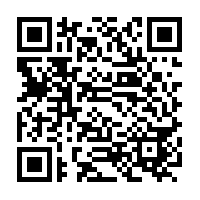KOMPETENSI PROFESIONAL GURU SMK PROGRAM KEAHLIAH TEKNIK KENDARAAN RINGAN BERDASARKAN KURIKULUM SMK TAHUN 2013
Abstract
ABSTRAK
Unsur utama dalam perubahan dan pembaharuan sistem pendidikan bergantung pada penguasaan kompetensi oleh guru. Meninjau pentingnya peran guru dalam membentuk lulusan maka diperlukan penyesuaian kompetensi profesional guru. Teknik Kendaraan Ringan (TKR) adalah program studi yang banyak dikembangkan dan diminati masyarakat. Penelitian ini menjawab kebutuhan kompetensi profesional guru TKR berdasarkan Kurikulum SMK Tahun 2013. Metode yang digunakan adalah deskriptif kualitatif. Teknik pengumpulan data memanfaatkan teknik Delphi. Analisis data menggunakan triangulasi sumber dan pencarian konsensus. Kompetensi profesional Guru TKR terdiri dari 5 bidang yaitu bidang keteknikan; mesin; powertrain; sasis dan suspensi; dan kelistrikan. Keseluruhan kompetensi terdiri dari 32 kompetensi inti, 56 sub kompetensi dan 193 indikator esensial. Kompetensi tersebut harus dikuasai Guru berdasarkan taksonomi pendidikan sesuai dengan level domain kognitif proses dan domain pengetahuan. Penguasaan pada domain kognitif proses sebesar 9,375% untuk C2; 25% untuk C3; 50% untuk C4; dan 15,625% untuk C5. Penguasaan pada domain pengetahuan sebesar 9,375% untuk K1; 53,125% untuk K2; dan 37,5% untuk K3.
Kata Kunci: Kompetensi Profesional Guru, Teknik Kendaraan Ringan, Kurikulum SMK
ABSTRACT
The changing and reforming education system relies on the acquisition of competence by teachers. Light Vehicle Engineering Expertise Programme (TKR) is a study program developed and demanded as the development of science and technology and the needs of society. This study aimed to answer the needs of professional competence to be mastered based the vocational curriculum 2013. This study used a qualitative method with Delphi technique. Data was analyzed by using triangulation sources and consensus search. The professional competence of TKR teachers consists of 5 areas: field of engineering; machine; powertrain; chassis and suspension; and electrical. The professional competence of vocational teachers overall had 32 core competencies consisting of 56 sub-competencies and 193 essential indicators. The professional competence must provide taxonomic level of education that must be mastered at any standards of competence and professional competence of teachers. Vocational teachers need to master the cognitive domain of 9.375% for C2; 25% for C3; 50% for C4; and 15.625% for C5, and the knowledge domain of 9.375% for K1; 53.125% for K2; and 37.5% for K3.
Keywords: Teachers' Professional Competence, Light Vehicle Engineering, Vocational Curriculum
Full Text:
PDFReferences
Anderson, L.W., dan Krathwohl, D.R. 2001. A Taxonomy for Learning, Teaching, and Assesing: A Revision of Bloom’s Taxonomy of Educatioanl Objectives. Addison Wesley Longman, Inc. New York. USA.
Arikunto, S. 1993. Manajemen Pengajaran Secara Manusia.Rineka Cipta. Jakarta.
Bloom, B. S. Bertram, B, Mesia dan Krathwohl, D R. 1964. Taxonomy of Educational Objectives (two vols: The Affective Domian T The Cogniive Domain). David Mckay. New York. USA.
Danim, S. 2002. Inovasi Pendidikan: Dalam Upaya Meningkatkan Profesionalisme Tenaga Kependidikan. Pustaka Setia. Bandung.
Dermawan, R. 2004. Pengambilan Keputusan: Landasan Filosofis, Konsep, dan Aplikasi. Alfabeta. Bandung.
Gunawan, I. & Palupi, A. R. 2012. Taksonomi Bloom – Revisi Ranah Kognitif: Kerangka Landasan Untuk Pembelajaran, Pengajaran, Dan Penilaian. Jurnal Prodi PGSD [online]. 2 (2): 34.
Komisi Standardisasi. 2005. Pedoman Penyusunan Standar Kompetensi Kerja. Badan Nsional Sertifikasi Profesi. Jakarta.
Mulyasa, E. 2007. Kompetensi inti dan Serifikasi Guru. PT. Remaja Rosda Karya. Bandung.
Peraturan Pemerintah Nomor 32 Tahun 2013 Tentang Perubahan atas Peraturan Pemerintah Nomor 19 Tahun 2005 Tentang Standar Nasional Pendidikan.
Ramasamy, J. 2007. Model Kompetensi: Wajarkah Sektor Awam Meniru Sektor Swasta?. www.jpa.gov.my/buletinjpa/J2bil2/KOMPETENSI.htm. Diakses tanggal 30 September 2013.
Sugiyono. 2011. Metode Penelitian Kombinasi (Mixed Methods). Penerbit Alfabeta. Bandung.
Sukmadinata, N. S. 2009. Metode Penelitian Pendidikan. PT Remaja Rosdakarya. Bandung.
Suyanto dan Djihad, H. 2000. Refleksi dan Reformasi Pendidikan Indonesia Memasuki Millenium III. Adi Cita. Yogyakarta.
Turoff, M. dan Linstone, H. A. 2002. The Delphi Method Techniques and Applications. Olaf Helmer. California.
Undang Undang Nomor 14 Tahun 2005 tentang Guru dan Dosen.


